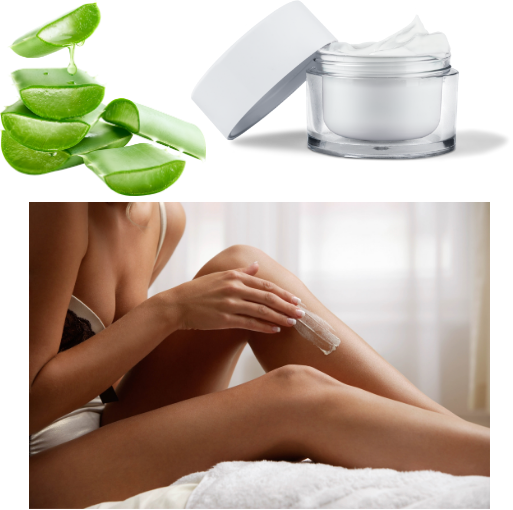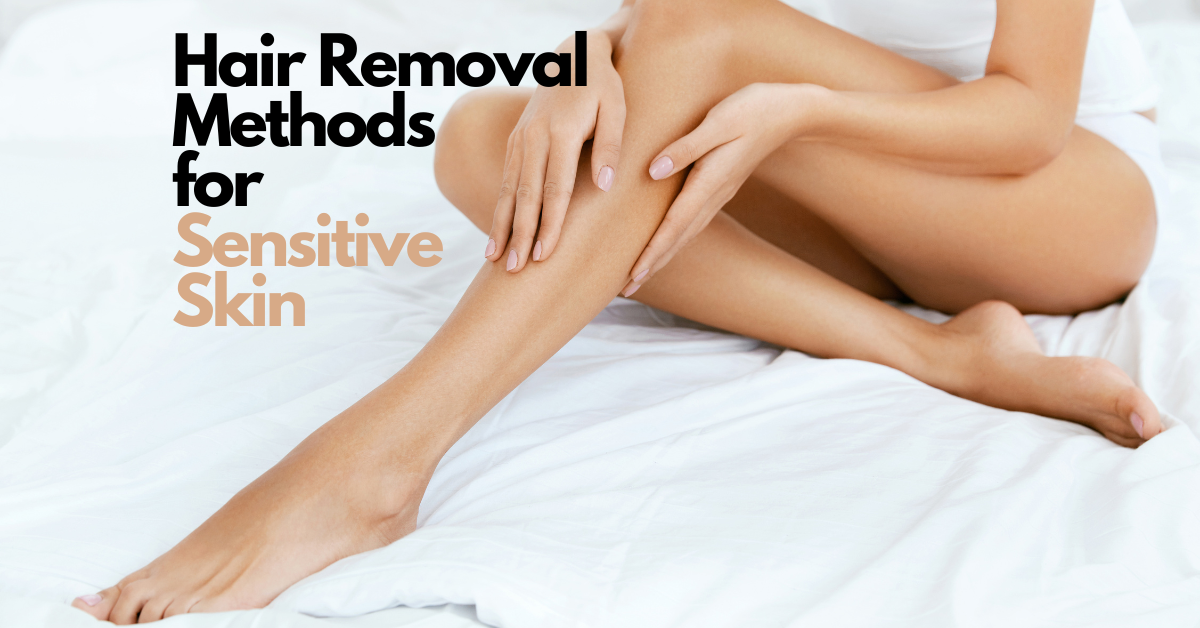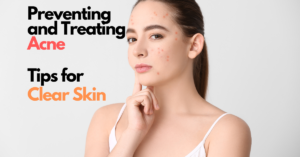Most individuals with sensitive skin know the struggle of finding the right hair removal method that doesn’t irritate or cause discomfort. It can be a daunting task to navigate through the multitude of options available, from shaving and waxing to sugaring and laser treatments. In this blog post, we will outline the best hair removal methods specifically tailored for those with sensitive skin, highlighting their benefits, drawbacks, and suitability for different skin types. By the end, you’ll have a comprehensive guide to help you make an informed decision on the most suitable hair removal method for your sensitive skin.
Understanding Sensitive Skin
Characteristics of Sensitive Skin
To effectively address hair removal for sensitive skin, it’s crucial to first understand the characteristics of sensitive skin. Sensitive skin is prone to reactions such as redness, irritation, itching, or stinging in response to certain triggers like skincare products, environmental factors, or hair removal methods. Individuals with sensitive skin often have a thinner skin barrier, making it more susceptible to outside irritants.
How Hair Removal Affects Sensitive Skin
Pertaining to hair removal for sensitive skin, the method chosen can significantly impact skin reactions. Certain hair removal techniques like waxing, threading, or using depilatory creams can cause irritation, redness, or even allergic reactions in those with sensitive skin. Even shaving with a dull blade or using harsh chemicals in creams can exacerbate skin sensitivity.
The key is to choose hair removal methods that are gentle on the skin while still effectively removing unwanted hair. Opting for options like gentle wax formulas, using sharp razors, or seeking professional laser hair removal treatments can help prevent adverse reactions and maintain skin health for those with sensitive skin.
Pre-Hair Removal Preparations
Skin Sensitivity Test
Test your skin sensitivity by applying a small amount of the hair removal product on a small patch of skin. Wait for 24 hours to see if you have any adverse reactions such as redness, irritation, or itching. If no reaction occurs, it is likely safe to proceed with the hair removal process.
Pre-removal Skin Care Tips
With sensitive skin, it’s crucial to prepare your skin before hair removal to minimize irritation and potential side effects. Follow these tips:
- Gently exfoliate your skin to remove dead skin cells and prevent ingrown hairs.
- Moisturize your skin to keep it hydrated and nourished.
- Avoid using any harsh skincare products or treatments before hair removal.
After following these steps, your skin will be better prepared for a smoother and less irritating hair removal experience.
This will help reduce the risk of irritation and ensure a more comfortable hair removal process for your sensitive skin.
Recommended Hair Removal Methods for Sensitive Skin
Shaving Tips for Sensitive Skin
For individuals with sensitive skin, shaving can often lead to irritation and razor burn. To minimize these effects, it is recommended to use a sharp, clean razor blade and a gentle shaving cream or gel. Shave in the direction of hair growth to reduce the risk of ingrown hairs and irritation. Avoid pressing too hard on the skin and ensure to moisturize afterwards for a soothing effect.
- Use a sharp, clean razor blade
- Shave in the direction of hair growth
- Avoid pressing too hard on the skin
Assume that using a gentle touch and quality products will help prevent irritation and keep your skin smooth and healthy.
Depilatory Creams Suitable for Sensitive Skin
Suitable for sensitive skin, depilatory creams offer a pain-free hair removal method. These creams work by dissolving the hair at the root, leaving the skin smooth and hair-free. It is important to choose a cream specifically formulated for sensitive skin to avoid any adverse reactions. Conduct a patch test prior to use to ensure compatibility with your skin.
Sugaring as a Gentle Alternative
Sensitive skin can benefit from sugaring as a gentle alternative hair removal method. Sugaring involves a mixture of sugar, lemon, and water that effectively removes hair while exfoliating the skin. This natural approach is less likely to cause irritation compared to traditional waxing, making it a great option for those with sensitive skin.
Laser Hair Removal Considerations
Sensitive skin requires special considerations when opting for laser hair removal. It is crucial to consult with a dermatologist or licensed professional to determine if laser treatment is suitable for your skin type. Individuals with sensitive skin may experience redness or irritation post-treatment, so it is recommended to follow post-care instructions carefully to soothe the skin and achieve optimal results.
Post-Hair Removal Care
Soothing Skin After Hair Removal
After hair removal, it’s crucial to soothe your skin to minimize any potential irritation. Applying aloe vera gel or a calming moisturizer can help reduce redness and inflammation. Avoid tight clothing that may rub against the skin and further irritate it. Keep the treated area clean and avoid using harsh products that may irritate the skin further.
Preventing Irritation and Redness
An important aspect of post-hair removal care is preventing irritation and redness. One effective way to achieve this is by using products specifically formulated for sensitive skin. Look for products containing ingredients like chamomile, calendula, or tea tree oil, known for their calming and anti-inflammatory properties. These ingredients can help reduce redness and soothe the skin after hair removal.
Care should also be taken to avoid excessive sun exposure on the treated area immediately after hair removal, as sun exposure can further irritate sensitive skin. Using a soothing and gentle moisturizer with SPF can help protect the skin and prevent any additional irritation.

Final Words
With these considerations in mind, it is clear that there are various hair removal methods available for individuals with sensitive skin. The best approach is to choose a method that suits your skin type and preferences, such as shaving, waxing, sugaring, or laser hair removal. Additionally, it is important to take proper care of your skin before and after hair removal to minimize irritation and potential reactions. Consulting with a dermatologist or skin care specialist can also provide valuable guidance on the most suitable hair removal method for your sensitive skin. By following these tips, you can achieve smooth and hair-free skin without compromising its health and comfort.
References
- “The Best Hair Removal Techniques for Sensitive Skin” – Healthline
- “Managing Sensitive Skin During Hair Removal” – Dermatology Times
- “Effectiveness and Safety of Hair Removal Methods for Sensitive Skin” – Journal of the American Academy of Dermatology (JAAD)



